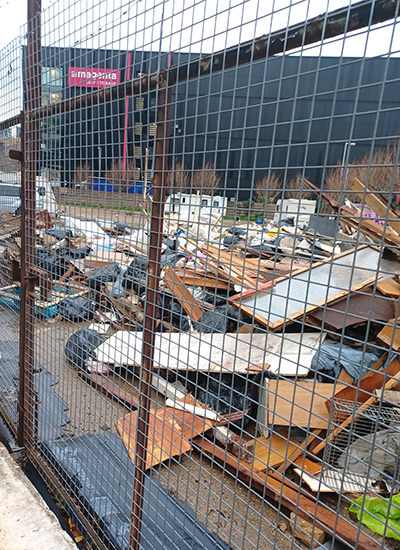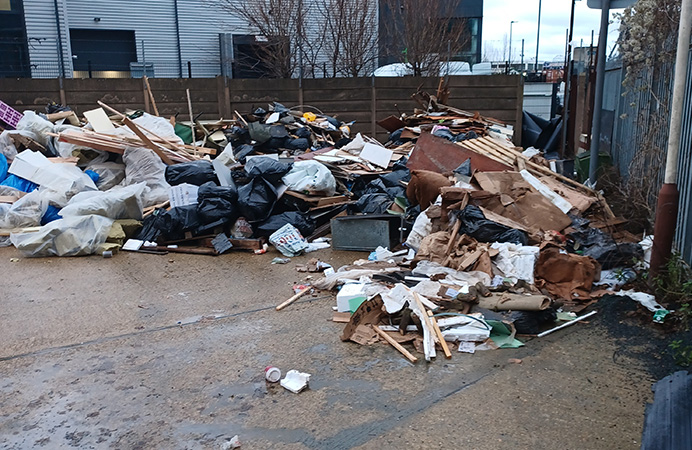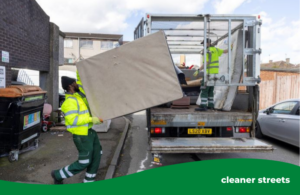Fly-tipping costs Ealing Council more than £300,000 per year to clear up. That is money that could be spent on other services.
Just as an example, that could have bought 1,000 street trees and paid for their upkeep for two years. Or it could have got 44,000 children’s books for our libraries. Or two top-notch outdoor gyms in our parks.
What a waste.
Councillor Deirdre Costigan, the council’s cabinet member for climate action, said: “Fly-tipping is a completely unnecessary blight on our streets. Many residents don’t realise that when they book a ‘man with a van’ to take away their rubbish, it’s very likely that their rubbish will end up illegally dumped on someone else’s street. It’s easy to do a simple check to find out if a waste removal company has a proper licence. If you don’t, you run the risk of your rubbish being dumped illegally – and finding yourself in trouble as a result.
“Fly-tipping causes an anti-social mess that is costly to clear-up. It uses up money and resources we could have spent on something else. Don’t be caught out – check before you agree to someone taking away your rubbish.”
Your legal responsibility
It is the responsibility of everyone – whether a resident or a business owner – to make sure your waste is removed by a licensed waste carrier. In other words, a reputable company that has been approved by the authorities and that will dispose of it correctly.

If you hire someone unlicensed to dispose of your rubbish, you can expect to find it will be fly-tipped. That usually means a pile of waste dumped on the side of a road, or perhaps in the entrance to a park. It’s anti-social, potentially dangerous and a total waste of taxpayer’s money. Your money.
You can find out if a waste carrier is licensed on the government’s website. Just ask the company you are thinking of using to share their ‘upper tier’ waste carrier’s licence number with you. Then you can check it online, and you can have peace of mind.
A licenced waste carrier will also provide to you a receipt for the transaction and a waste transfer note which will include the name of the company, the amount and nature of the waste sold, and how the waste was disposed of. This is important. You should keep this waste transfer note in your records for at least two years as proof. Anyone that does not supply a waste transfer note will almost certainly fly-tip your rubbish.
Your rubbish can be traced back to you
Watch out for cons. Some rogue builders and gardeners will advertise that they are ‘fully licensed’ and they will promise to remove any waste – so it’s important that you check that they are.
Another common approach is a builder or gardener piling excess waste in the front garden of a work site. A van or caged vehicle will then come along and offer to remove the rubbish for cash. This will often happen without the homeowner’s knowledge, but the end result will look like the pictures on this page.
Ultimately, it is your responsibility. And when fly-tipping is investigated, there are often tell-tale clues about where it has originated. Environmental enforcement officers will hold you responsible for your rubbish being fly-tipped, even if you did not directly fly-tip it.
Bulky waste collection service
Of course, this is all unnecessary because you can check if the company has a licence (as above).
And, there is also the council’s bulky waste collection service.
If you have a small number of large items (up to 8 items) the council offers an affordable collection service. You can book it online. The service can also give you a quote if you have more than 8 items.
If a company is offering to remove the same items for less than the council, you run the risk of the items being fly-tipped. Always check for a licence.
If you are unable to book a collection with the council, West London Waste Authority also offers a bulky waste collection service that you can use. For more information or to make a booking visit its website.





